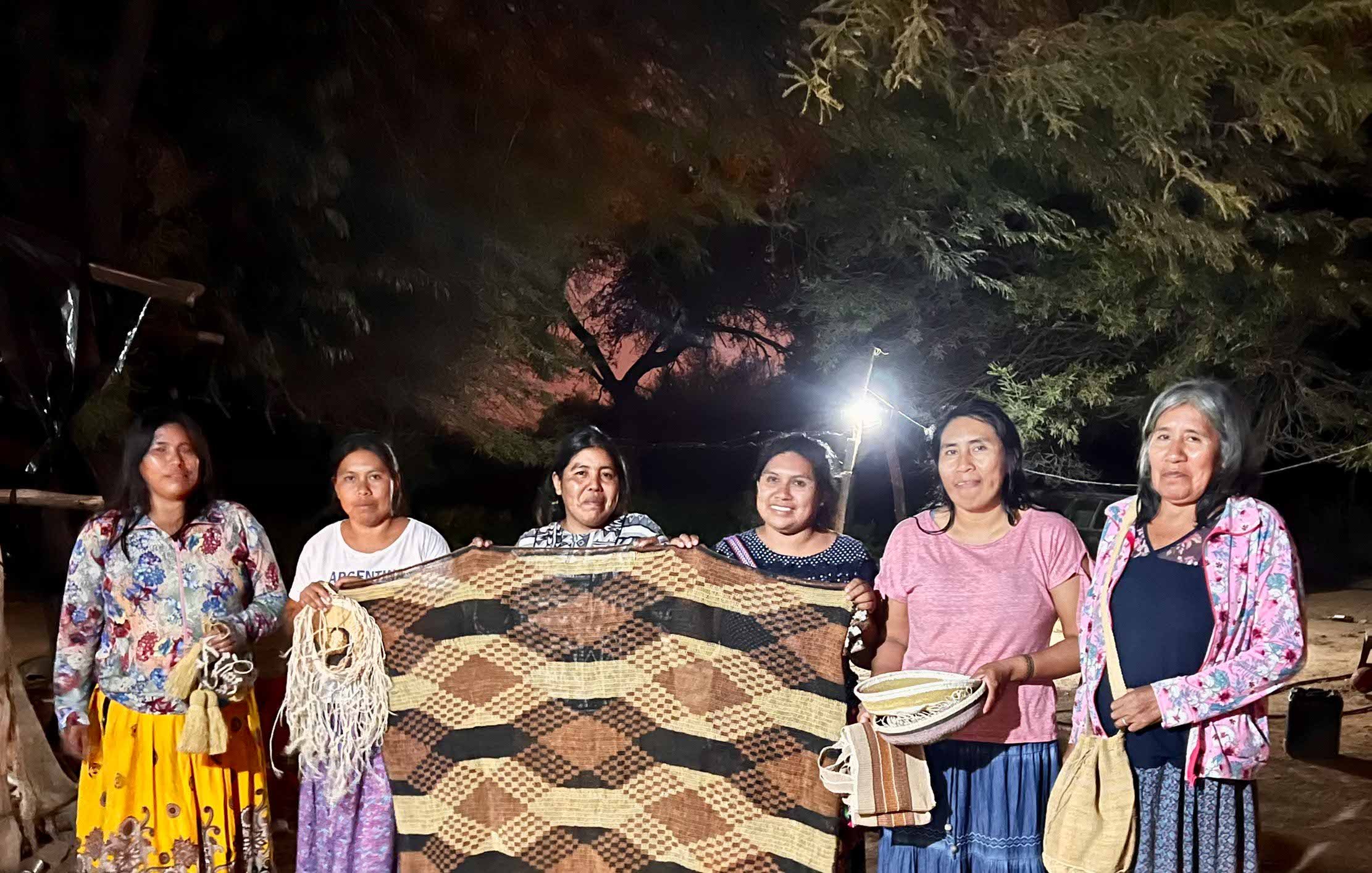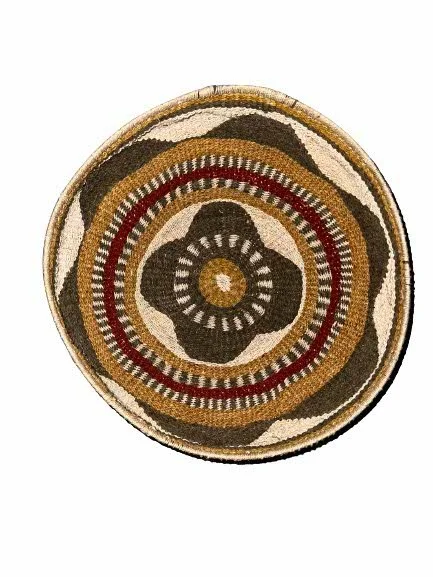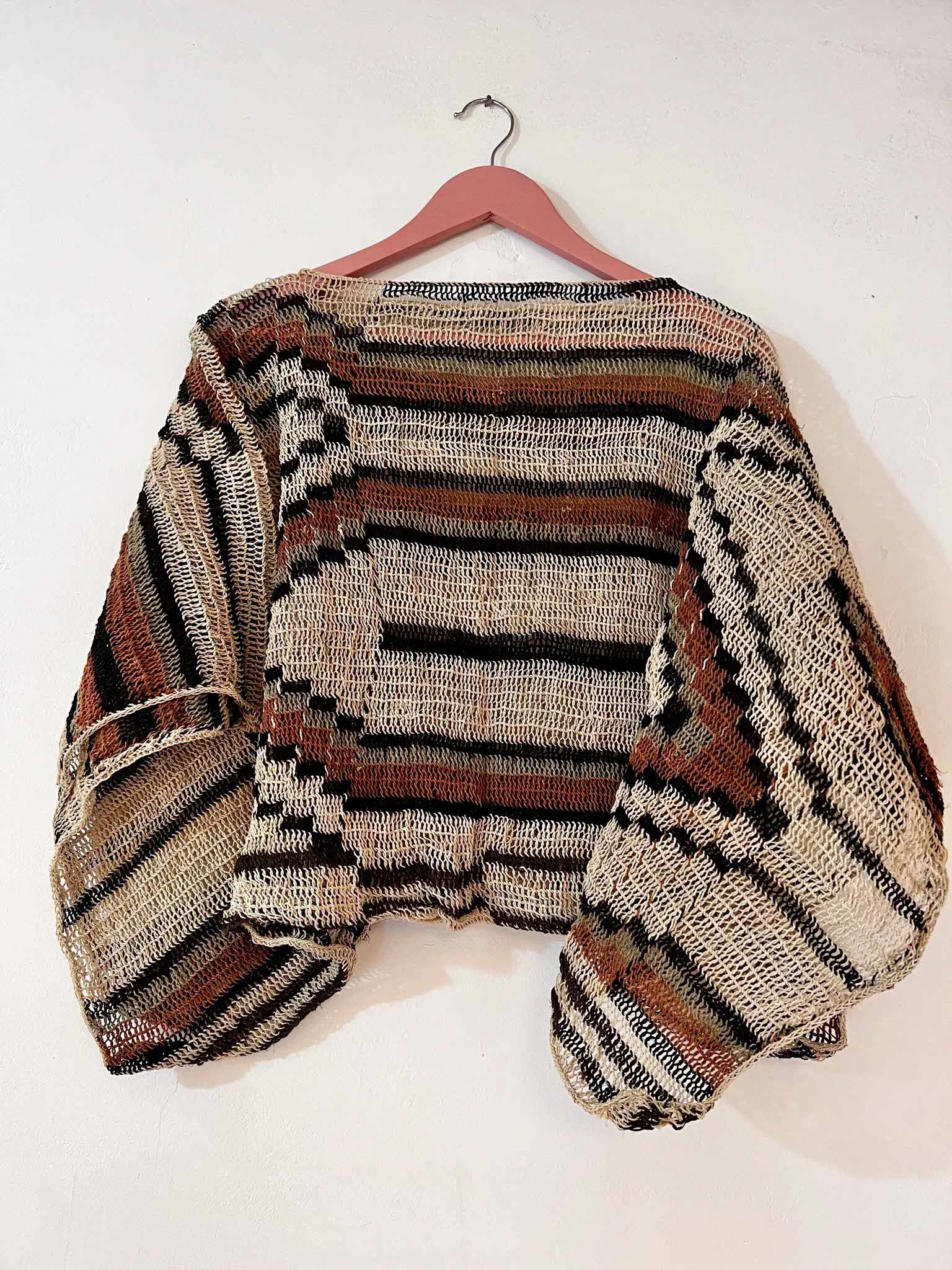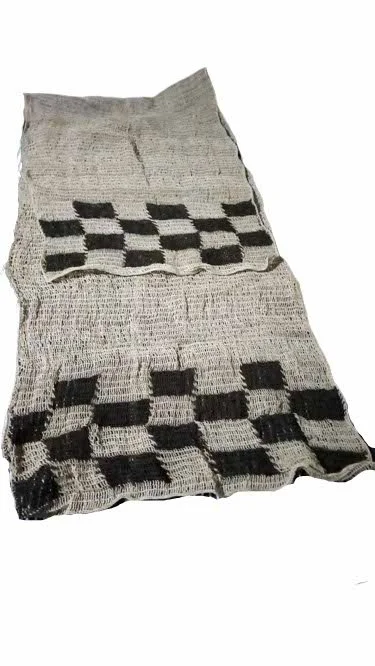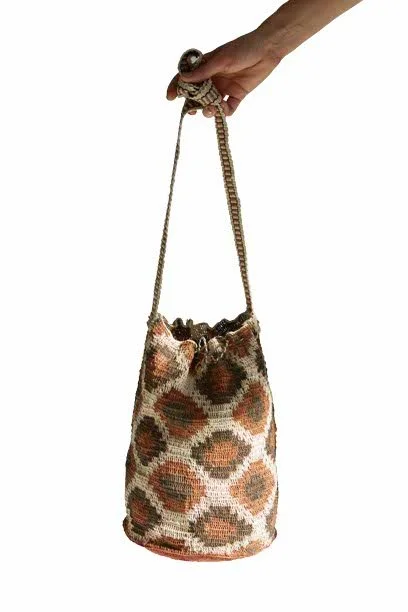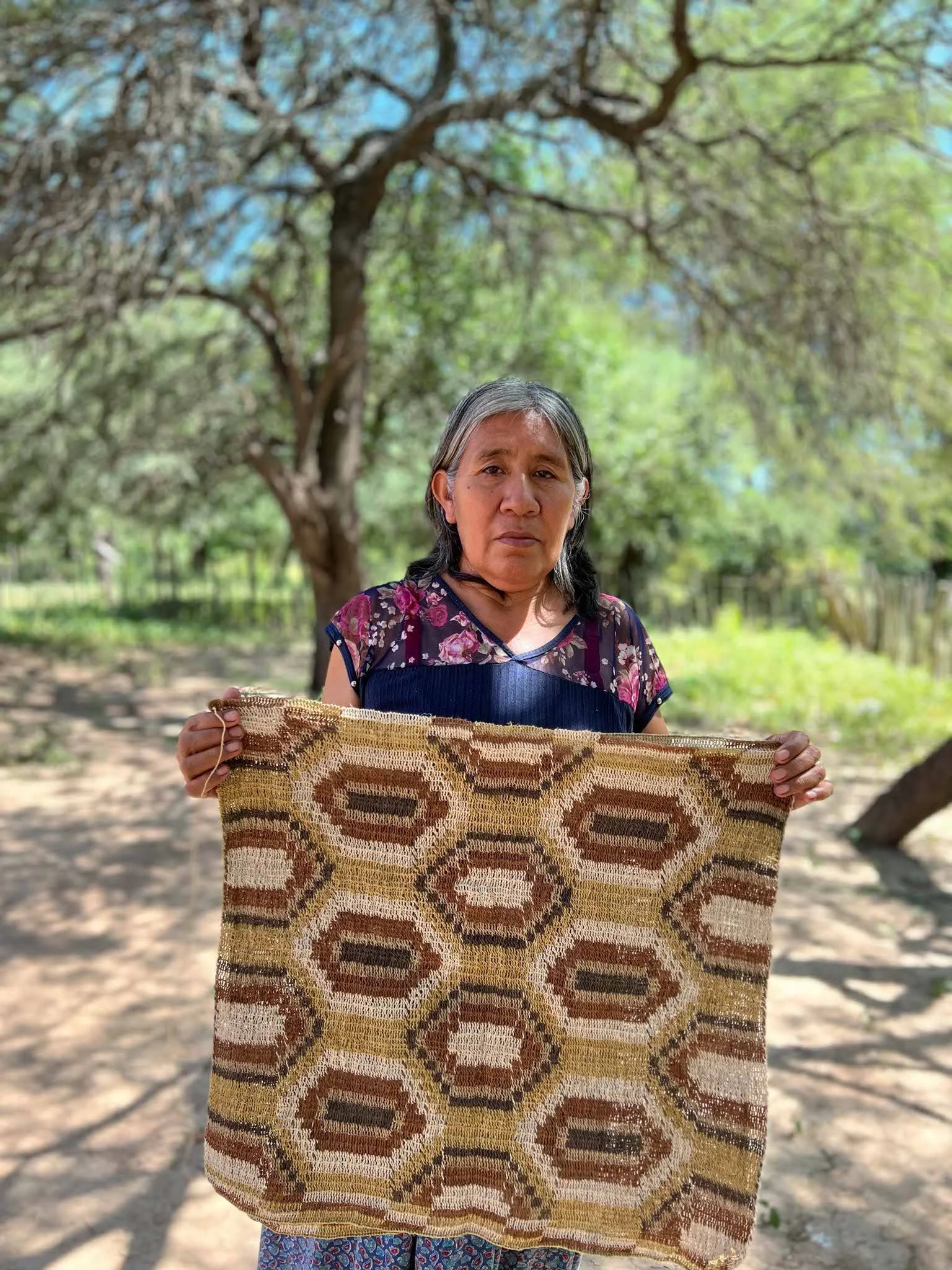MAWO
Wichilenay Weaving: Handmade Goods from the Wichi People of Argentina
Master jeweler Karim Oukid Ouksel was born in the Kabyle village of Ath Yani, Algeria. Though small, Ath Yani has a centuries-old status as a producer of highly skilled artisans who make meticulously crafted, strikingly colorful jewelry. To this day, it is hailed by many as the most important region for Kabyle jewelry-making in North Africa. Building on his decades-long career, Ouksel has noted that his primary goal is to perpetuate the historical reputation of Ath Yani jewelers, as well as to promote the rich culture of his ancestral land and community.
The work begins by joining strands of chaguar fiber in the hand and rolling them into threads. From there, the threads can be dyed with tinctures made from roots, leaves, fruits, and ashes to obtain a palette of earthy colors inspired by and derived from nature. Once their materials are ready, weavers begin the slow and laborious process of knotting and overcasting, making baskets, carpets, garments, and bags by hand and according to tradition. Their works feature variations of ancestral patterns, symbols, and sacred geometry. Each object speaks of the landscape and its people, and is itself a part of Wichi history.
MAWO is dedicated to the enhancement and advancement of the vibrant living culture and ancestral art of the Wichi Tribe. Through the sale of their woven wares, the group creates jobs as a means of offering financial empowerment and support for the women who make up the vast majority of their weavers, with a focus on helping those in vulnerable rural communities. Sandra Toribio, a representative of MAWO says, “We are the story that restores and rejuvenates our livelihoods, [and] local economies by turning each page and rewriting the future. […] Our crafts are the diary of the artisan history of the Wichi. They [come from the] heart of our peoples [and are made in] tribute to the Wichi artisan traditions, and the ancestry of a people that [continue to survive].”


